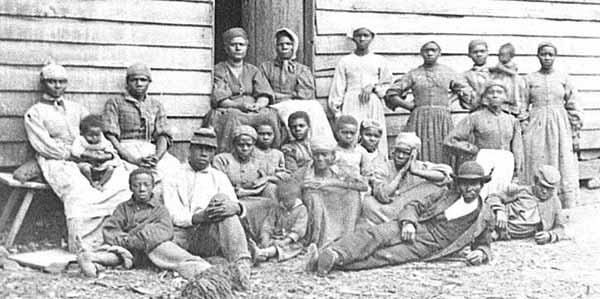
October 24, 2012, by Stephen Mumford
History and Politics
Earlier this month I attended the inaugural lecture of Celeste-Marie Bernier, a new professor at Nottingham’s Department of American and Canadian Studies. The lecture explored images of slavery, showing how the masters depicted their slaves one way while slaves and former slaves tried to tell a different story when they had the rare opportunity to be photographed. The lecture was brilliant and inspiring.
Margaret Thatcher was reported to have called the study of history a luxury. Perhaps in difficult economic times it is a luxury we can do without, shifting the focus to wealth-creation? No: without history, how would we know that people were enslaved in North America? And without knowing that, how would we understand contemporary American society? And how would we know not to repeat mistakes of the past? But there is another insight to be gleaned from the study of history, which is its contested and political dimension.
Some slaves left the owners when the opportunity arose; and why would they not? Immediately there was a story to tell. The master reported the slave as an outlaw. Newspaper reports and advertisements represented the slave as an uneducated near-savage, with images always of them running and holding a bundle of clothes. Rewards were offered. But were they truly the outlaws? Was there not a bigger, moral law that was on the side of the escapee? In time, history was revised. Those who ran were not wrong. The era of slavery was shameful and people were willing to listen to the former-slave stories. And in images too, displayed by Bernier, African Americans showed that they were cultivated and civilised: just as human as their masters and we might say more so.
To question and to try to explain the past seems to be a very deep human need. Anyone who witnesses significant events has a story to tell from their point of view. And it is a deeply political matter because the past shapes the present and future. We have recently seen another major revision accepted to history here in Britain. In 1989, 96 football fans died at the FA Cup semi-final at Hillsborough. The media told their story, fed a line by a combination of political interests. Police statements were altered. The fans’ own behaviour was blamed for the tragedy. That could have been the ‘truth’ of the story but for the families of the deceased who campaigned for history to be reviewed and revised. A different narrative compelled them and the evidence, once liberated from suppression, supported it. Now it is their story that compels us, just as the story of the slaves prevailed over the masters’.
The cliché is that history is written by the victors. But there is another cliché that truth will out. I am not sure which of these is right. Will those with political power always be able to manipulate history, skewing our understanding of the past? I have hope and encouragement that they will not. As the dictator loses power, their misdeeds seem soon to come to light. But we have no guarantee that this will happen: there are doubtless many untruths that have persisted, buried beneath deceit and misconception.
Like everyone else, I have an interest in this. If history is written by the victors then it seems also that the history of philosophy is written by the victors. And there are truths and falsehoods to be found in that history too.

[…] Stephen Mumford: Margaret Thatcher was reported to have called the study of history a luxury. Perhaps in difficult economic times it is a luxury we can do without, shifting the focus to wealth-creation, perhaps? No. […]
[…] https://blogs.nottingham.ac.uk/artsmatters/2012/10/24/history-and-politics/ Share this:TwitterFacebookLike this:LikeBe the first to like this. […]